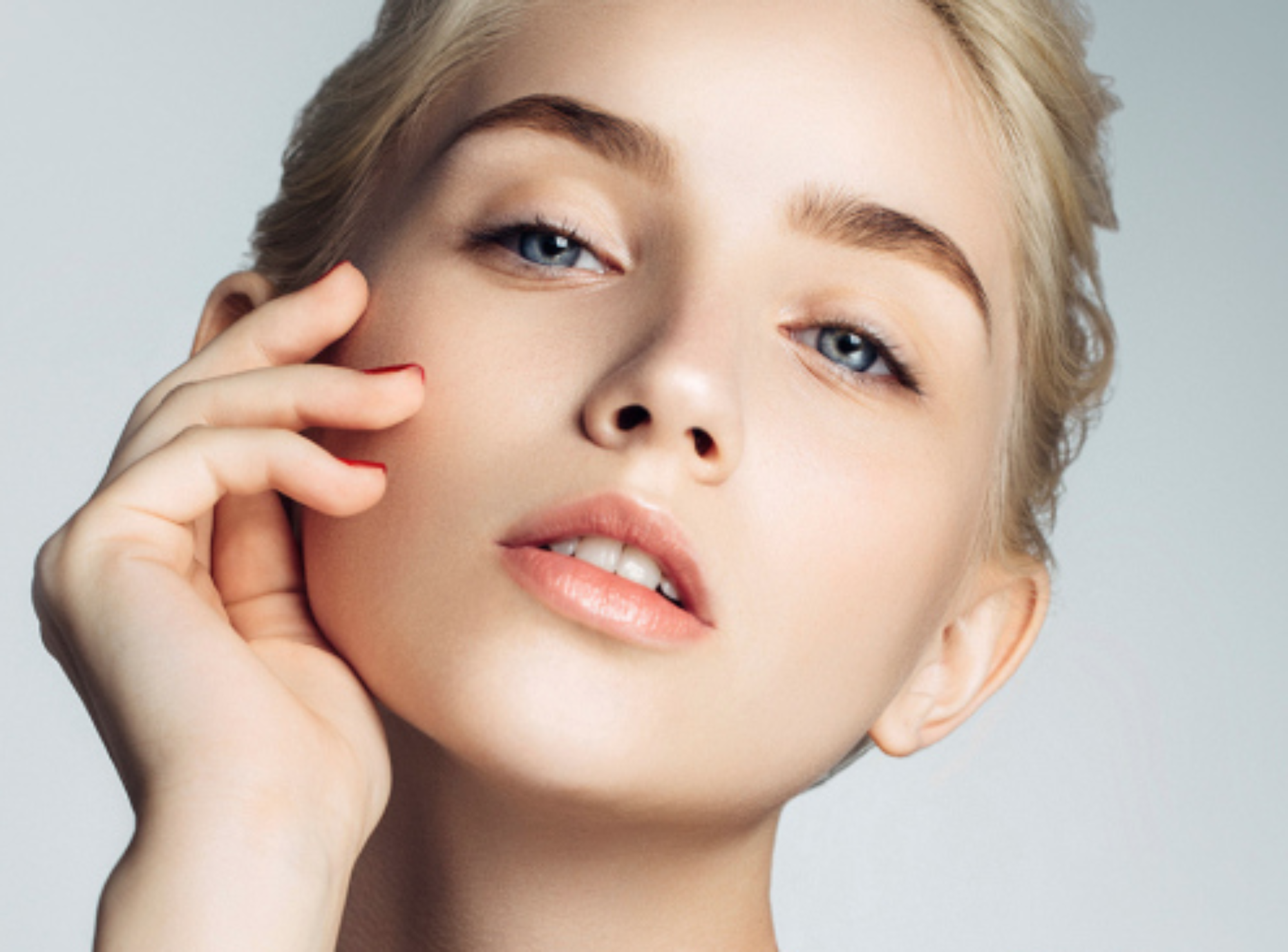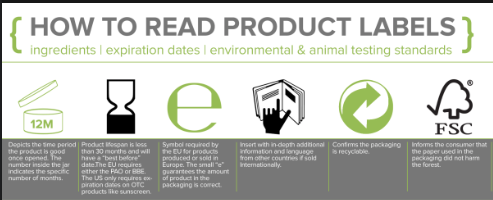One question that I get asked almost on a daily basis is about the ingredients in cosmetics. What should I look out for in a product that is going to be detrimental to my skin? Most of the time, people’s biggest concern is Alcohol and Skin Care Products, and maintaining healthy skin.
Alcohol In Products – How To Interpret It:

However, it isn’t so easy to give a straightforward answer, simply because everyone’s skin type is different, and anyone who has ‘sensitive’ or ‘very sensitive’ skin need to be particularly careful with the cosmetics they apply to their skin, as alcohol is the number one irritant for sensitive skin.
That said, one thing I do advise everyone, is to look for and avoid anything that has ‘Alcohol’ high on the list of ingredients.
With so much misleading or incomplete information online, you can easily believe that not all alcohol-based cosmetics are harmful to your skin. Products loaded with alcohol (SD alcohol, denatured, ethanol, methanol or ethyl alcohol) are absorbed quickly into the skin and have a light, delicate feel to them, it’s easy to see why they appeal to manufacturers and the reason why they like to keep adding them to their products.
Despite this widely available information being misinterpreted, research is conclusive: No matter what skin care problems you have, alcohol as the main ingredient in a skin care product is a going to aggravate it.
Can Alcohol Ever Be Good For Your Skin?

So, it’s perfectly understandable that you may be thinking their has to be a good reason why so many skin care companies include alcohol in their products. Of course, a few reasons will appear, but their are only two explanations that hold any weight. As previously mentioned, alcohol can make a skin-care product feel almost weightless, creating a deceptively pleasing aesthetic.
The second reason being that your skin is their to protect your body from ‘foreign bodies’ entering it, and naturally, this will include any cosmetics we try to apply to our skin, these include the ‘good’ ingredients we like to ‘feed’ it.
Skin-protective substances (lipids, enzymes, and antioxidants) are keeping the beneficial ingredients in your cosmetics from getting into your body. Alcohol helps to get these ‘good’ ingredients like retinol, and vitamin C to be absorbed into the skin more effectively, but in doing so it damages the skin’s barrier, destroying the very substances that keep your skin healthy.
There are undoubtedly other, less harmful ways to get the right ingredients into the skin, and without damaging the surface.
Read – Skin Management – Learning Good Habits
If Alcohol Evaporates – How Damaging Can It Be?
Most people will know that alcohol evaporates quickly, so it seems logical to think that if it is not on the skin surface for very long, the damage will not be so severe. Unfortunately, that is only wishful thinking, alcohol immediately harms the skin and will continue to cause damage long after it has evaporated.
Once the alcohol has done damage to the skin’s barrier, your skin has been weakened, and it will never be as good at protecting itself from further damage.
The Good & Bad Types Of Alcohol:

There is a group of ‘fatty alcohols’ which are not harmful in any way to the skin. Unfortunately, these often get confused with the bad alcohols, such as Denatured alcohol, the fatty alcohols (the right type) include, among others, Cetyl, Stearyl, and Cetearyl Alcohol.
These fatty alcohols are used as emollients and thickeners in skin-care products. Fatty alcohols do not irritate your skin and can be beneficial to help relieve dry skin, they give a pleasant texture to creams/lotions and help keep components stable in products, in small amounts these won’t create problems to any skin type.
When we talk about the presence of ‘bad’ alcohol in cosmetics, we are referring to a drying type of alcohol, the names to look out for on the ingredient label are, SD Alcohol, Denatured Alcohol, Ethanol, Methanol or Ethyl Alcohol and less frequently used Isopropyl Alcohol. These are the volatile alcohols that give products a quick-drying finish and help creams to feel weightless on the skin surface, and they also help to de-grease skin. It is understandable they have some appeal to consumers, especially for those with oily skin.
When you see any of these types of alcohol listed in the first six ingredients on the packaging of any cosmetic product, without question they will aggravate and are bad for all skin types. The consequences of using any cosmetics with high alcohol contents are dryness to your skin, erosion of the surface of the skin; this affects how the skin replenishes, renews, and rejuvenates itself. These bad types of Alcohol weaken everything about skin.
Alcohol’s Connection To Acne & Oily Skin:

Alcohol has two benefits that will undoubtedly appeal to people who suffer from acne and oily skin. Alcohol can kill acne-causing bacteria, and help reduce their breakouts, which is why people with acne favor alcohol-based anti-acne products. Alcohol also de-greases skin, and that instant relief from shiny skin is appealing to those with oily complexions.
However, research has shown that alcohol-based anti-acne products increase both irritation and dryness, thus making it difficult for those with acne to stick to their skincare routine. Research indicates that anti-acne products that contain milder alternatives to alcohol are better for the skin. The downside of using alcohol-based treatments is that the damage they cause leads to an increase of acne-causing bacteria, and makes inflammation of the affected area worse.
For those treating oily skin, alcohol can stimulate oil production at the base of the pore, so the de-greasing effect is counteracted by oily skin producing more oil, it is a no win situation! You have to avoid products that have high Alcohol content.
Alcohol & Skin Cells:
While researching this subject, I was reading about an experiment where small amounts of alcohol were applied to skin cells in laboratory settings (about 3% alcohol, keep in mind skin-care products contain values ranging from 5% to 60% or more) over the course of two days it increased severe skin-cell damage by 26%. The alcohol also destroyed the substances in skin cells that help to reduce inflammation and defend against free radicals.
So, it leads back to the question, why are products that are alcohol-based still being produced? We know these cause damage to our skin, whether you see the damage straight away or 10 years from now. There is no reason to use alcohol in cosmetics given that their are more advanced alternatives currently available.
Isn’t it a good reason for cosmetic companies to now stop developing SD alcohol/ethanol-based products when it’s such an out-dated way to be making cosmetics.
Conclusion:
So, what is the conclusion regards Alcohol and Skin Care Products? The research is clear: Alcohol harms your skin’s protective barrier, aggravates sensitive skin, triggers free-radical damage, makes oily skin and redness worse, and the most damning thing of all, it will rapidly age your skin.
It’s quite simple people, given the damaging effects of alcohol-based products, avoid them altogether when their are hundreds of skin-friendly alternatives available.
What are your concerns regarding Alcohol in Cosmetics? Please leave any comments or questions below, and I will be happy to discuss them with you.
jo@yourskincarehelp.com




Hi OMG well what a shock to learn from your post about all the products that can have alcohol in them, and the amount of damage it causes the skin! Thank you for bringing this to our attention. Keep up the good work & help that you provide, I look forward to your next article.
HI Megan, it’s true the skin is indeed a very sensitive part of the body and many people are unaware of the damage they are doing with certain hygiene products. I really do believe that manufacturers can and should be doing more to remove these chemicals and making the public more aware of harmful ingredients.
Regards
Jo
An eye opening article!! I never new The Alcohol ingredients was so damaging to the skin!.. I will be checking all my make-up today and throwing anything that has high alcohol content, and I’m going to do more research before I purchase new products!… thank you for bringing this information to our attention!… ? many thanks Zoe
HI Zoe, many people are unaware how sensitive skin is with certain alcohol’s in products, it is important to check the ingredients when buying any cosmetics. There are products on the market that don’t have ‘bad’ alcohol in them so there is no need to take the risk. Regards Jo
I know that alcohol dries out my skin causing more breakouts, but I didn’t know that alcohol can rapidly age one’s skin.
Thanks for this very informative article.
I enjoyed reading it.
Keep up the great work.
Hi Pearl, thank you for your comment. Yes, unfortunately alcohol is one of those ingredients that is ‘hidden’ in numerous cosmetic products, continuous application to the skin will cause damage and regrettably age the skin, do your best to avoid it if possible. Regards Jo
so many people use cosmetic products and are totally unaware of the damage they are doing to their skin
This has been a real eye opener to read. I can honestly say I never realised there were different types of alcohol in products which can damage and age skin….I will be taking more care to read labels and think about which brands/products I will be purchasing from now on. Thank you for highlighting this important point.